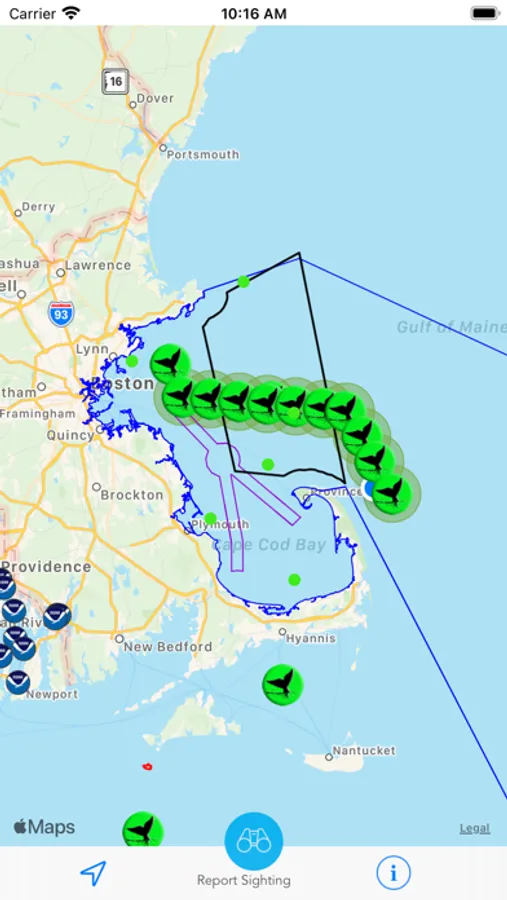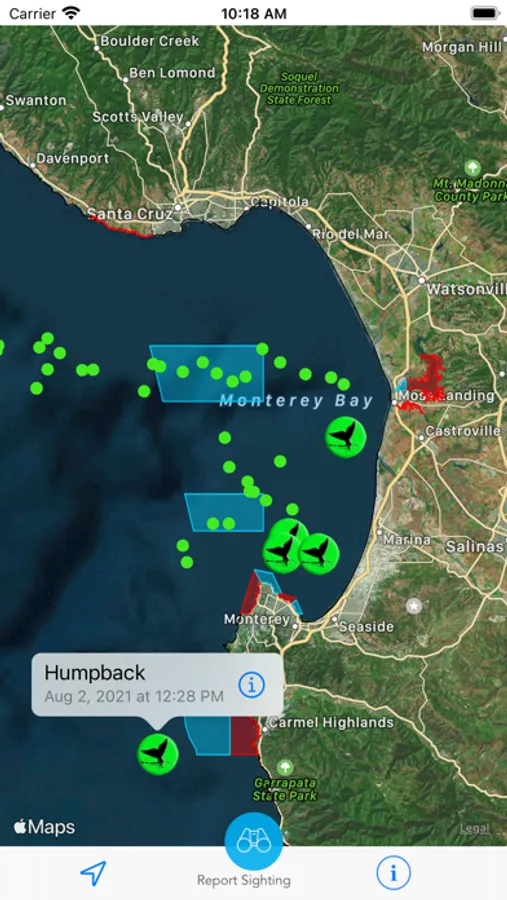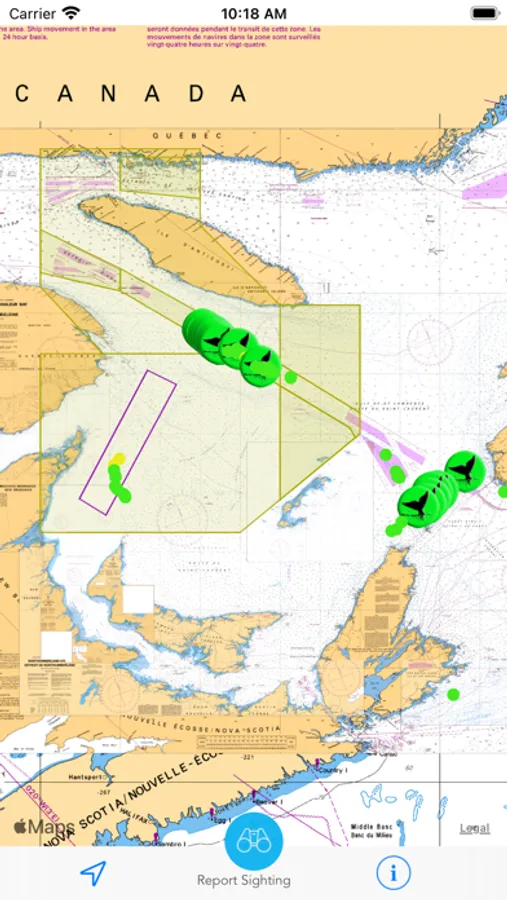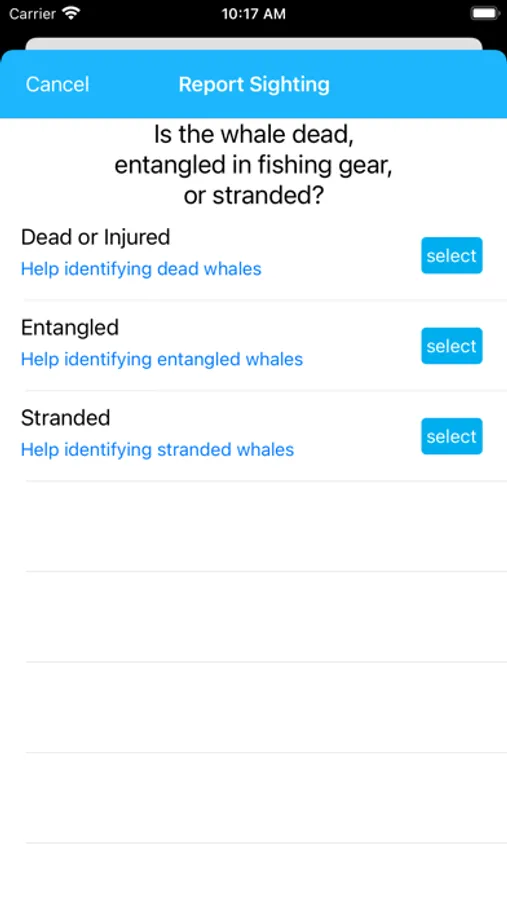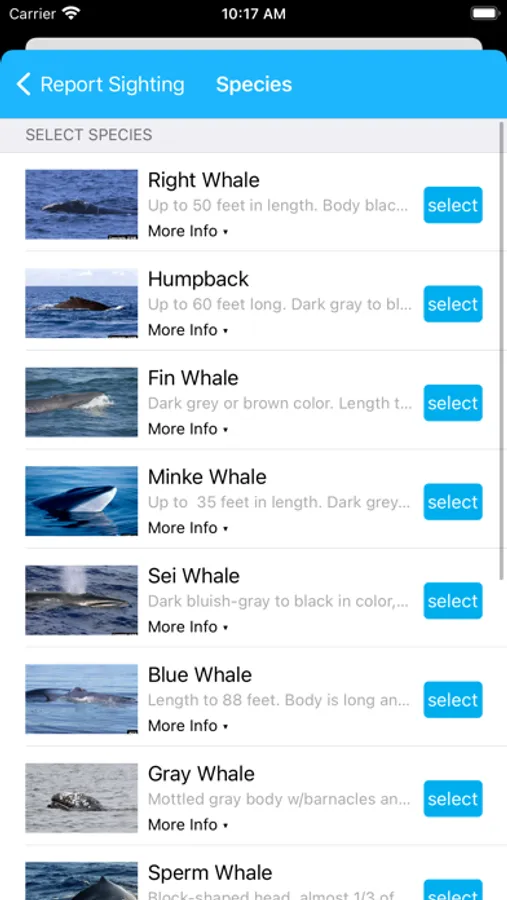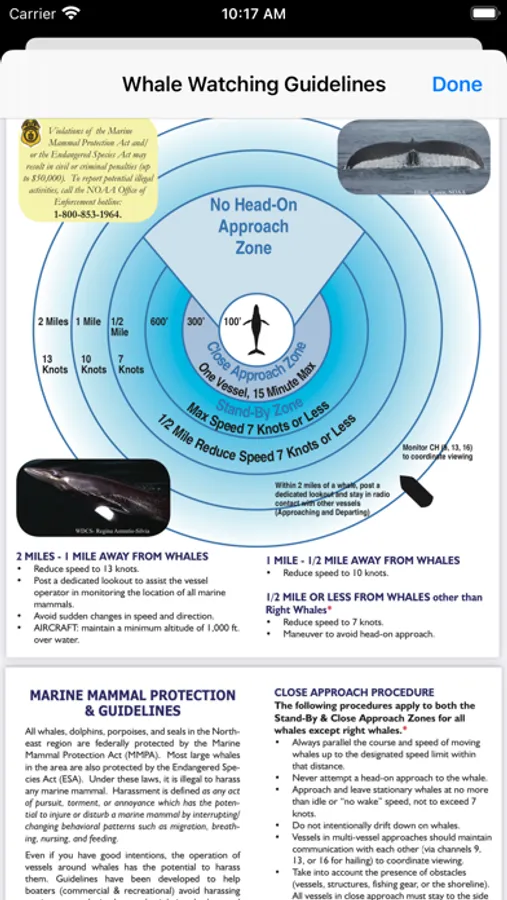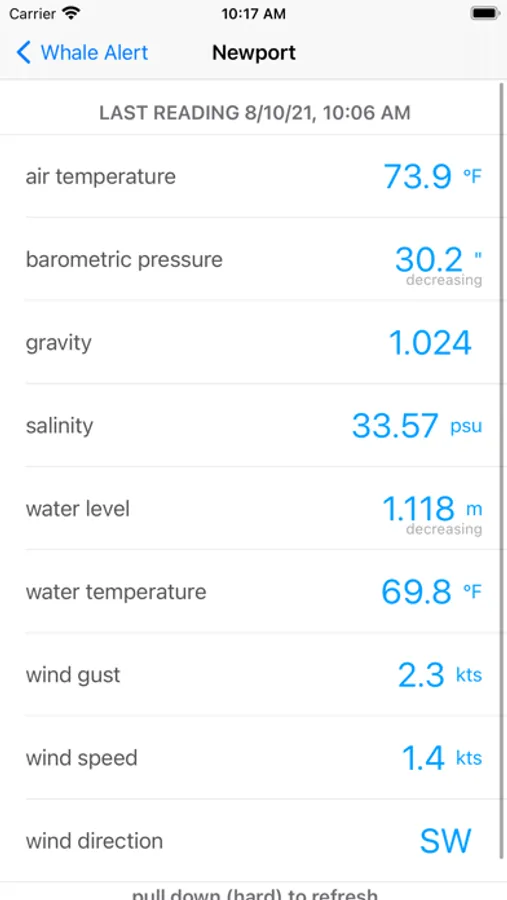AppRecs review analysis
AppRecs rating 3.0. Trustworthiness 0 out of 100. Review manipulation risk 0 out of 100. Based on a review sample analyzed.
★★★☆☆
3.0
AppRecs Rating
Ratings breakdown
5 star
33%
4 star
18%
3 star
10%
2 star
20%
1 star
20%
About Whale Alert
Protect Whales. Prevent Collisions. Join the Effort.
Vessel strikes are a leading cause of whale injury and death around the world. With the Whale Alert app, you can help keep whales safe—whether you're a mariner, recreational boater, beachgoer, or scientist.
Whale Alert turns your sightings into action.
Report live, dead, or injured whales, stay informed about speed zones and regulations, and view whale activity on an interactive map. Every report contributes to a safer ocean for whales and people.
Key Features:
- Interactive Map: View recent whale sightings from professionals and citizen scientists, acoustic detections from buoys and gliders, and aerial survey data.
- Real-Time Alerts: Get notified when you're near recent whale activity or areas of concern.
- Report Sightings: Log sightings of living, dead, or injured whales and report marine hazards or vessel strikes.
- Whale ID Guide: Identify whale species accurately using an in-app identification tool.
- First Responder Connection: Quickly connect with response teams for distressed, stranded or dead whales..
- Collision Risk Monitoring: Understand your vessel’s risk based on location, speed, and likelihood of whale presence.
- Marine Rules at a Glance: Access speed limits, seasonal protections, and region-specific whale approach guidelines.
- Data-Rich Map Layers: Includes arine sanctuaries and protected areas, seasonal and dynamic management areas, U.S. marine charts, NOAA PORTS® data, and likely whale presence along the U.S. East Coast and Europe.
- Multilingual Support: Available in English, French, and Spanish.
Whale Alert is currently available in the U.S., Canada, and Europe.
______________________________________
Why It Matters:
Whales are vulnerable to collisions with vessels of all sizes. In California, gray whales are the most commonly reported victims of vessel strikes. On the Atlantic coast, the critically endangered North Atlantic right whale faces a similar threat. In the Mediterranean, vessel strikes are the leading cause of human-caused death for fin and sperm whales.
Slowing down saves lives. Whale Alert empowers you to take simple, informed actions that make a big impact. By reporting sightings and following in-app guidance, you help reduce ship strikes, inform science and policy, and protect some of the ocean’s most iconic creatures.
The Whale Alert team consists of IFAW, Conserve.IO and Greenov. We are part of a global effort to reduce vessel strikes and other human activities that threaten marine mammals. Our network of partners, contributors and sponsors include NOAA Stellwagen Bank National Marine Sanctuary, Whale Alert — West Coast, NOAA Fisheries Service, Canadian Whale Institute, Channel Island Cetacean Research Unit, Bay of Fundy—Tidal Energy, Whale Alert Alaska—National Park Service, The Marine Mammal Center, Orca Network, Beam Reach, OceanWise, Marine Mammal Advisory Group, Ørsted and ProtectedSeas.
Download Whale Alert today and help make the ocean safer for whales—one sighting at a time.
_______________________________________
Continued use of GPS running in the background can dramatically decrease battery life.
Vessel strikes are a leading cause of whale injury and death around the world. With the Whale Alert app, you can help keep whales safe—whether you're a mariner, recreational boater, beachgoer, or scientist.
Whale Alert turns your sightings into action.
Report live, dead, or injured whales, stay informed about speed zones and regulations, and view whale activity on an interactive map. Every report contributes to a safer ocean for whales and people.
Key Features:
- Interactive Map: View recent whale sightings from professionals and citizen scientists, acoustic detections from buoys and gliders, and aerial survey data.
- Real-Time Alerts: Get notified when you're near recent whale activity or areas of concern.
- Report Sightings: Log sightings of living, dead, or injured whales and report marine hazards or vessel strikes.
- Whale ID Guide: Identify whale species accurately using an in-app identification tool.
- First Responder Connection: Quickly connect with response teams for distressed, stranded or dead whales..
- Collision Risk Monitoring: Understand your vessel’s risk based on location, speed, and likelihood of whale presence.
- Marine Rules at a Glance: Access speed limits, seasonal protections, and region-specific whale approach guidelines.
- Data-Rich Map Layers: Includes arine sanctuaries and protected areas, seasonal and dynamic management areas, U.S. marine charts, NOAA PORTS® data, and likely whale presence along the U.S. East Coast and Europe.
- Multilingual Support: Available in English, French, and Spanish.
Whale Alert is currently available in the U.S., Canada, and Europe.
______________________________________
Why It Matters:
Whales are vulnerable to collisions with vessels of all sizes. In California, gray whales are the most commonly reported victims of vessel strikes. On the Atlantic coast, the critically endangered North Atlantic right whale faces a similar threat. In the Mediterranean, vessel strikes are the leading cause of human-caused death for fin and sperm whales.
Slowing down saves lives. Whale Alert empowers you to take simple, informed actions that make a big impact. By reporting sightings and following in-app guidance, you help reduce ship strikes, inform science and policy, and protect some of the ocean’s most iconic creatures.
The Whale Alert team consists of IFAW, Conserve.IO and Greenov. We are part of a global effort to reduce vessel strikes and other human activities that threaten marine mammals. Our network of partners, contributors and sponsors include NOAA Stellwagen Bank National Marine Sanctuary, Whale Alert — West Coast, NOAA Fisheries Service, Canadian Whale Institute, Channel Island Cetacean Research Unit, Bay of Fundy—Tidal Energy, Whale Alert Alaska—National Park Service, The Marine Mammal Center, Orca Network, Beam Reach, OceanWise, Marine Mammal Advisory Group, Ørsted and ProtectedSeas.
Download Whale Alert today and help make the ocean safer for whales—one sighting at a time.
_______________________________________
Continued use of GPS running in the background can dramatically decrease battery life.
